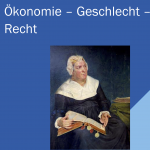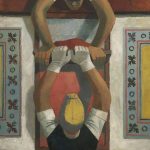 Schools OUT: 5th Festival of LGBT History (Web)
Schools OUT: 5th Festival of LGBT History (Web)
Time: 29-31 March 2019
Venue: Ulster University, Belfast
Proposals by: 1st October 2019
The 5th Festival of LGBT History is celebrated at Regional Hubs throughout February and March 2019 and – for the first time – celebrated internationally. The organizers invite individuals and groups to showcase either 1) a historical reading of the past; 2) an archival source and personal oral testimonies, sets of photos, or significant documents and the stories behind them or 3) a researched presentation on a piece of unknown LGBT+ history.
The historical presentation/reading/interpretation might cover a past local, regional or national …
- … event or related events of direct relevance to the Human/LGBT+ Rights agenda & experience
- … history of a group or a specific campaign
- … account of a personal journey that includes a number of view-points
The theme for LGBT History Month 2019 is „History II: Peace, Reconciliation, and Activism“, celebrating the official end of the First World War and marking the 50th anniversary of the Stonewall Riots. This is to enable … read more (PDF)





